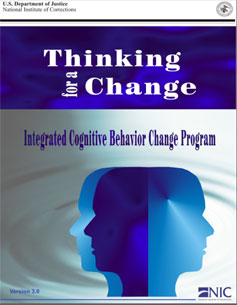- HubPages»
- Health»
- Mental Health»
- Mental Health Self-Help
Self Beliefs and How They Affect US
Self Beliefs

Where Do Our Beliefs Come From?
Beliefs are a dominant force in everything we do. We constantly have messages going on in our heads all day long. Where do these messages come from? They start from our self beliefs and it is these beliefs that we become deeply attached to. Self beliefs become a part of our personal identity and get wrapped up in our .principals and system of our moral conduct. A problem exists when these self beliefs are actually false beliefs, only we are not aware that they have little basis in reality.
How we think directly affects our mental and physical health. Everything begins with a thought. Thinking positive creates positive more positive thoughts, choices, and actions. Negative thinking can have adverse effects on us physically and mentally. The messages we tell ourselves and the thoughts we think directly affect our behavior, attitude and actions.
Studies have additionally shown that people who have negative thoughts put themselves in a self defeating cycle that impedes the body from healing, and is associated with more frequent physical pain and can cause a breakdown of our immune system.
Core Beliefs
Messages We Tell Ourselves
Core beliefs are connected to our basic needs. Everything we do and say is a reflection of our core beliefs. These core beliefs reside deep within us. What we believe abut ourselves is associated with a belief we have about others. Sometimes these core beliefs get in the way of our personal growth and our need to change.
The messages we tell ourselves and our ongoing inner dialogue impacts everything we do, say, the way we behave, and our reactions to all that happens to us. Is your inner dialogue positive or negative?
Negative messages we tell ourselves can lead to negative feelings such as depression, poor self esteem, victimization, helplessness, hopelessness, holding ourselves back, and self criticisms. The more negative self talk the more we believe it. We can convince ourselves of anything.
Positive statements can improve our lives and move us forward towards our dreams and desires. Like the children’s book, The Little Engine That Could. I think I can, I think I can, will actually make good things happen.
How we learn to talk to ourselves has its origins in our beliefs about ourselves and our world. Our beliefs started from the way our parental figures communicated to us and our life experiences. As children, we accept our parents beliefs about us and internalize it and accept it as our reality, whether it is the truth or not. We go through life trying to validate these beliefs in our interactions with friends and strangers alike.
Thinking and Change

Making Changes in Our Belief System
In order to change our negative self talk to more positive ones, we need some self awareness. Through insight, we can modify the ingrained old beliefs and reshape new beliefs into positive messages we tell ourselves.
-
try to pay attention to the messages you are telling yourself.
-
note your body’s reaction to various situations. If you tense up, you thoughts might not be congruous with your actions.
-
keep a journal about your thoughts - this will allow you to see what you are saying to yourself and you may be able to see a self talk pattern emerge
-
try to think about where these beliefs started and how they affect you- was it something that was told to you, or something that happened to you?
-
try now to reshape this belief - try to understand what is behind the negative messages you tell yourself
-
allow yourself the luxury of rejecting a long held belief
-
talk to someone else to gain a new perspective
-
meditate - using guided imagery to help you uncover some of your hidden beliefs
-
change the negative statements to positive ones - turn for example the self message I am fat into I love who I am
-
repeat each day, your new positive statements with enthusiasm and say it like you own it
-
when you slip up, ask yourself if you would speak to a friend that way and turn it into a positive affirmation.
There is a great payoff to positive self talk by creating a better world for yourself.
When you change your core belief, which takes a lot of awareness, your perspective will change and you can look at yourself with more kindness.
We seek to validate our beliefs When contrary information threatens our belief, people tend to have a does not compute mentality. Without a place to put this conflicting information, we discard it. In essence our beliefs, left unchallenged will never change.
Our core self beliefs developed long ago in our childhood in response to the reality we perceived. Self beliefs are a form of our coping mechanism. Long after some of these beliefs should be discarded or challenged, they continue to play a crucial role in the everyday decisions we make and how we choose to see things. Sometimes our core beliefs distort our views. Core beliefs that do this can cause conflict within ourselves and with others. Core beliefs can propogate our fears, limit ourselves, cause physical complaints and emotional turmoil. Our beliefs can hold us back and view others wrongly.
If there are things you want to change in your life, now may be the time to question some of your core beliefs. Many of our core beliefs no longer serve a purpose. They could have come from our parents, and do not match who we really are. Some are outdated, or just plain incorrect.
Question Your Self Beliefs

The Roots of Our Beliefs
Question your own beliefs and put them to the logic test. Are you just drawing from automatice deep seated beliefs? Often our core beliefs were developed at time in our lives when we had a limited and minimal understanding of how thingw were. If you are making decisions based on things you only knew as a child, isn’t it time to challenge some of these thoughts?
Some of these beliefs are no longer valid and may restrict your own ability to move forward and view things with a different perspective. The roots of our beliefs may not suit us anymore, yet by holding on to them, we give up our ability to be open to new things that may improve our lives. We are influenced by our environment, and we are affected by the relationships in it. Our reactions depend on our beliefs that have been ingrained from long ago. Changing our beliefs is not an easy thing. We are usually emotionally attached to our thoughts, especially those that were taught to us from people we loved and trusted when we were younger. Our entire life, we try to look for evidence that substantiate our core beliefs. We reject anything that contradicts our beliefs. Our own identity hinges on these core beliefs. If we believe we are unlovable, we may look to hear messages that confirm this from other people. If someone tells us we are lovable, we may not believe them, and deny what they are saying. But beliefs can be changed, through self awareness and a lot of hard work. Therapy can be very effective in learning about our negative core beliefs. You can change negative core beliefs by giving yourself positive affirmations everyday, as long as you can accept and allow yourself to believe the new positive messages you tell yourself. This will help a small amount, counseling may be more effective to rid yourself of negative self beliefs.
Think about what your negative beliefs are about yourself. By changing your beliefs you will become a more confident person.
Our core beliefs may not even be real, they just feel real. What you think and what you feel is who you are. Our core beliefs take us in directions that fulfill these thoughts. We give these beliefs power and they contribute to the decisions we make that impact our lives
Challenge Your Core Beliefs
you would like to assess whether your core values are working for you anymore, start by asking yourself what are the most important values you hold dear. Look at the people you admire and think about the core values they might have. How do your values match the vision you have for yourself.
What do you believe your chances of succeeding and achieving your vision are? Think about the beliefs taht are holding you back Challenge these beliefs and substitute them with some positive self talk. This isn’t always easy, but it is important to recognize and disassemble the negative thoughts that sit inside your head.
Who put those beliefs there, and ask yourself what makes them true? False beliefs can only exist in a vacuum. Once you become self aware, they will not be your relaity anymore. It is very important to feel good about yourself. A good self esteem will help you grow and develop new and more powerful positive self beliefs.
It is natural to have some negative self beliefs.
To uncover them, think about how you think about yourself.
What names and words do you use to describe yourself. Do you criticize yourself and put yourself down? Question the words you use about yourself. What is the proof of your negative self view? What is this belief based on? How accurate are these thoughts?
Start to think of yourself in a more positive way. Life is what we are, not what we are not. There are many more things we are not than what we are. But who we are, is what makes us special. We all have imperfections. None of us are good at everything, but all of us are good at something.
The things we are good at, our personal strengths, are the things we need to encourage within ourselves. There is a lot connected to how we think of ourselves. When you think better of yourself, others will treat you better, and you won’t allow people to mistreat you.









